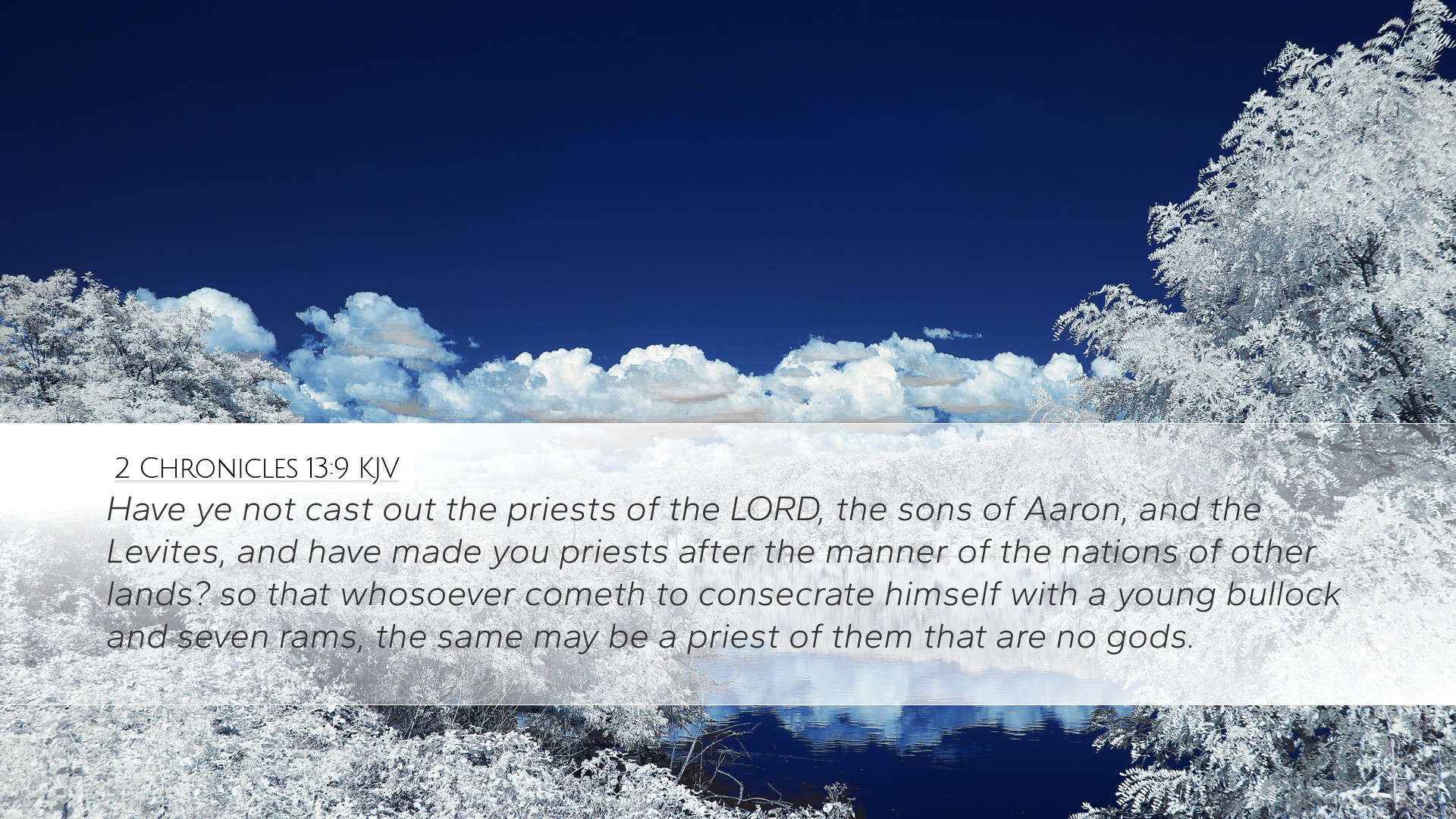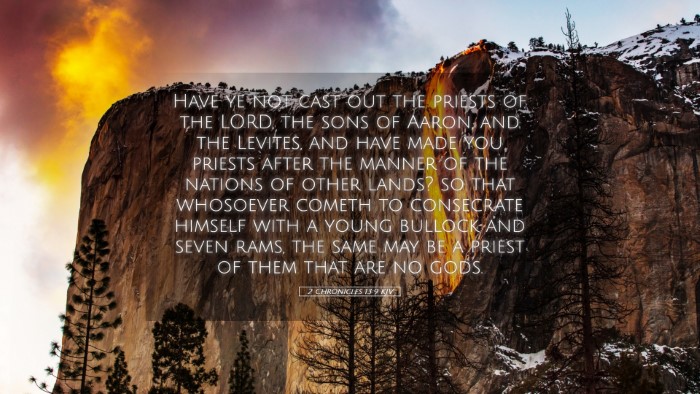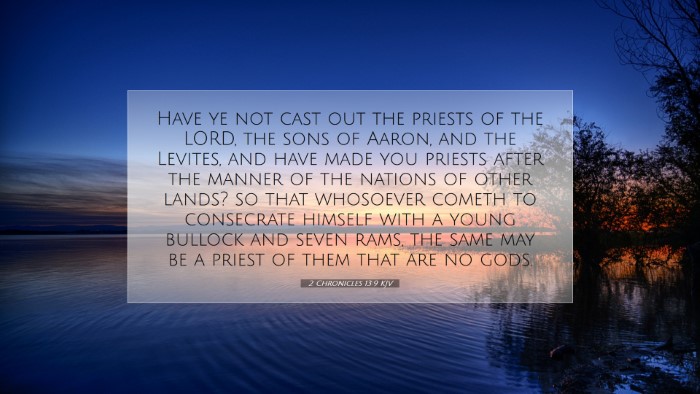Commentary on 2 Chronicles 13:9
Verse: 2 Chronicles 13:9 - “But the children of Israel said, What have we to do with David? And they erected a king over them. And the children of Israel were divided on the day of Jeroboam.”
Introduction
The historical context of 2 Chronicles 13:9 is significant for understanding the ongoing dynamics of Israel’s monarchy during a tumultuous period. This verse encapsulates the division between the northern tribes of Israel and the southern kingdom of Judah, highlighting issues of allegiance, leadership, and the covenant relationship with God. Herein, we draw insights from several public domain commentaries to unpack the theological and practical implications of this passage.
Historical Context
Matthew Henry's Commentary: Henry notes that this verse occurs in the midst of the recounting of the divided kingdom after the reign of Solomon. The division resulted from the burdensome policies of Solomon and his son, Rehoboam. This fragmentation is illustrated profoundly in the reaction of the children of Israel who rejected Davidic lineage in favor of their chosen king, Jeroboam. The decision to erect a king reveals their desire for political autonomy and reinterpretation of their identity as God’s people.
Albert Barnes: Barnes emphasizes that this moment crystallizes the ruptured political unity among God’s people and sets the stage for ongoing conflict. The question posed by the Israelites, "What have we to do with David?" exemplifies a break not just from Judah but from the Davidic covenant, which God had established. Rejection of David’s line meant a repudiation of the promises God made regarding the everlasting kingdom.
Religious Implications
Adam Clarke: Clarke provides insight into the religious ramifications of this civil strife. He argues that the division represents a deeper spiritual disillusionment. By choosing Jeroboam over Rehoboam, they also opted for an alternative worship system, abandoning the centralization of worship in Jerusalem. This choice set them on a path of spiritual decline, which would yield disastrous consequences as seen throughout Israel's history.
Theological Reflections
The theological implications of this division resonate throughout scripture and history. As noted by the commentators:
- Loss of Covenant Identity: The Israelites' rejection of David's lineage is a crucial moment of identity crisis for the people of God. This highlights the consequences of forsaking one's covenantal commitments.
- God's Sovereignty and Human Choice: The scripture demonstrates both divine sovereignty and human responsibility. While God had established the Davidic line, the people's choices led to detrimental outcomes.
- The Role of Leadership: The choice of Jeroboam signifies the importance of righteous leadership and its direct connection to the spiritual well-being of the community. Poor leadership leads to a deviation from God’s prescribed way of living.
Pastoral Applications
For pastors and church leaders, this passage serves as a poignant reminder of the importance of unity within the body of Christ. When congregations become divided, often over leadership or policy issues, it can lead to profound spiritual consequences. Addressing issues of discontentment and division through the lens of biblical leadership and covenant faithfulness is essential.
Leadership and Accountability: The verse underlines the necessity for leaders to model godly character and integrity. Jeroboam's rise demonstrates how leadership devoid of divine alignment can lead an entire people away from God's intended purpose.
Restoration and Repentance: Furthermore, this division encourages reflection on the need for communal restoration and the importance of repentance. Just as the divided people could seek reunification under God, so too can modern fellowships pursue reconciliation through Christ.
Conclusion
This commentary on 2 Chronicles 13:9 provides a multi-faceted exploration of the passage as seen through the lens of public domain scholarship. It reflects on the historical, religious, and theological intricacies that arise when God's people choose paths divergent from His will. Pastors, students, and theologians can draw from this wealth of insight as they seek to understand the profound implications of leadership, community, and faithfulness in their ministry contexts.


